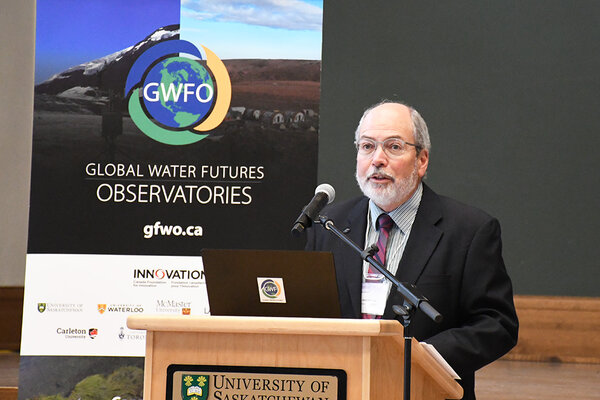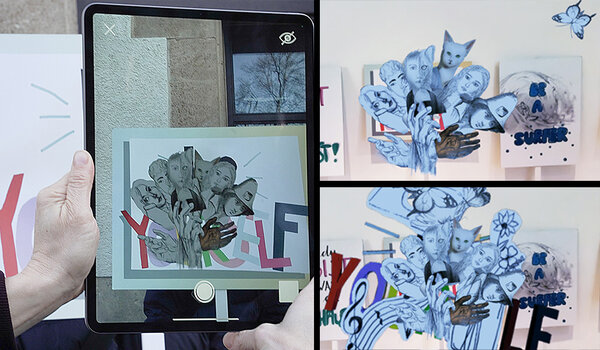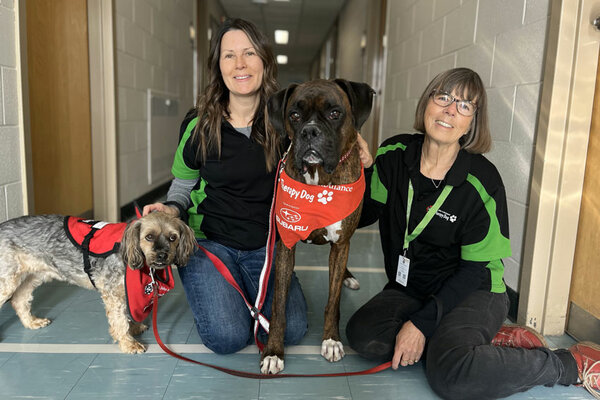
USask app helps read medicine labels
The new app will help visualize and “translate” difficult information on over-the-counter drug labels in way that is accessible to everyone
By Federica Giannelli
If you have ever felt confused about the instructions on drug labels, a new University of Saskatchewan (USask) smartphone app may be able to help.
The new app, developed by USask computer science undergraduate student Alexander Magnus and his supervisor Debajyoti Mondal, will help visualize and “translate” difficult information on over-the-counter drug labels in way that is accessible to everyone.
“Accidental drug misuse is a major problem that can be easily improved if people are given the right tools to understand the safe administration of their medications,” said Magnus.
“We wanted to create an app that helps people sort out the information on the labels in a clean, concise way using simple language, so that customers do not get confused about how to use the drug, and can compare it with similar medicines.”
Using the phone camera, the MedGuide app scans the medicine box, identifies the drug and provides prompts on the screen about how to use the medicine, the dosage, and the ingredients, as well as offering a warning of the side effects. The information is stored in a database of 100 existing drugs that was created to test the app, which uses intuitive icons matched with simple phrases that explain the images.
“Drug manufacturers follow guidelines from Health Canada about which information to include on drug labels, but they don’t tell you what information should be read or emphasized,” said computer science professor Mondal. “Our app does that.”
Magnus and Mondal worked closely with USask emergency medicine professor Brent Thoma and conducted surveys with the general public, doctors and pharmacists in Saskatoon. They designed the app to order and visualize the most important information first based on healthcare professionals’ recommendations. University of British Columbia (Okanagan) professor Khalad Hasan helped integrate the image recognition technology into the app.
The USask researchers tested MedGuide on almost 100 people. They proved that the app works both at “translating” the information into simple language correctly and that people could understand the information. The results have been presented at a recent international conference in Italy and will be available in the Mobile and Ubiquitous Multimedia journal.
“After trying it, everyone asked us whether MedGuide is available to download because they found it very useful and easy to use,” said Mondal, whose research is funded by the federal agency NSERC.
While the testing was successful, the app is not on the market yet. Mondal and Magnus would like to design a more refined prototype by 2020. They will also lead a study with health practitioners to see whether the app could be useful to them for recalling information and prescribing medicines.
“Apps like ours are the future,” said Mondal. “We are making our environment increasingly interactive using our phone cameras to interact with things that are static, like the new Google map feature where you take a photo of a building to know where you are in real time.”
Magnus enrolled into the USask computer science program because of the opportunities to work with innovations.
“I would like to have a good impact on people and help improve their lives through better technology,” he said. “Nowadays everyone has a smartphone or computer, there are so many applications.”
(This article first ran as part of the 2019 Young Innovators series, an initiative of the USask Research Profile and Impact office in partnership with the Saskatoon StarPhoenix.)


